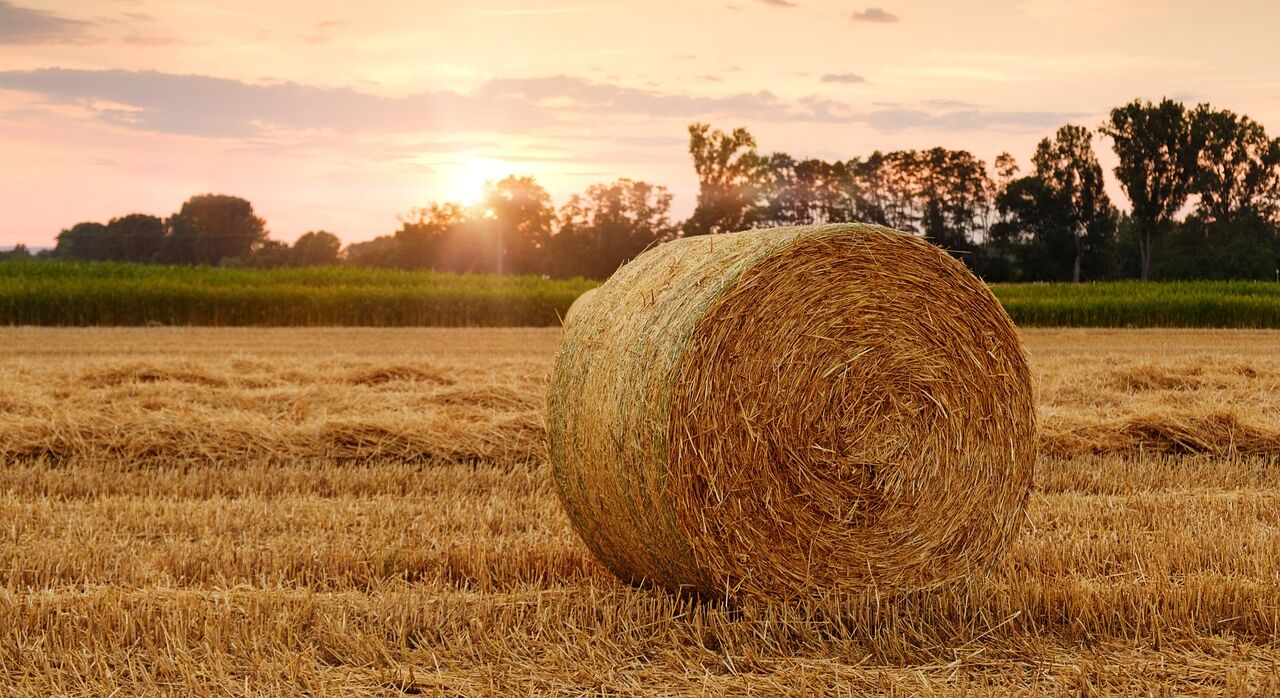Agri-Food Monthly Insights: March 2025
Welcome to our monthly insights into all EU agri-food policy news – from legislations and debates to political deals and manoeuvring – directly from Brussels and with a focus on sustainability.

Past weeks at a glance
- Vision for food and agriculture released. The European Commission presented its strategic document for the agrifood sector, looking at a 2040 horizon.
- Omnibus simplification battle ongoing. The Commission tabled its simplification of environmental reporting, due diligence and taxonomy.
- Momentum building around the European Water Resilience Strategy. As the publication of the Commission’s proposal draws near, stakeholders are making their voice heard at the recently closed public consultation and Mission Ocean and Water Forum.
- Commission to address fraud concerns on Chinese biofuels. Not all biofuels imported in the EU might be as sustainable as claimed.
- Progress is made in the Council on New Genomic Techniques. The Polish presidency put forward a new text which was welcomed by many delegations.
- Co-legislators find an agreement on the Waste Framework Directive on textiles and food waste, with binding waste reduction targets close to the Council’s original position.
- Publication of the Clean Industrial Deal by the Commission. For the agrifood sector, that means reduced energy prices and more circularity for biomass.
- Latest report shows that the EU is off track for many of its pollution targets. However, the European Commission refuses to see that as a warning against environmental simplification.
- European Board on Agriculture and Food appointed. Its work will notably feed in the Commission’s implementation of the vision for agriculture and food.

Major EU developments in detail
1. VISION FOR AGRICULTURE AND FOOD
The European Commission’s strategic document for the agrifood sector is out
What? On the 19th of February, the Executive Vice-President for Cohesion and Reforms Rafaelle Fitto presented the Commission’s strategic outlook for the upcoming mandate, the Vision for Agriculture and Food. Without setting any binding targets or obligations, it sets out a vision for a competitive agriculture sector by 2040.
Why is it important? The strategy aims to address the numerous difficulties facing the sector. It announces more than twenty proposals, from legislations to stakeholder consultations and sectoral strategies. The simplification package coming this year or the reform of the upcoming CAP in 2027 with increased Member State autonomy will have wide-ranging consequences. While it does not entail a revolution in the EU’s agricultural system, nor details concrete actions and financial backing, it could nevertheless herald significant changes.
Details? Here are some of the most salient points of the Vision:
-
- Bioeconomy and new genomic techniques are presented as areas of great potential and will be strongly supported by the European Commission.
- Administrative simplification is seen as a priority area for European action, supported by more frequent consultation with stakeholders to understand their challenges better.
- The next Common Agricultural Policy (CAP), stretching from 2027 to 2031, will leave more autonomy to Member States in their distribution of the CAP and will include considerations on strategic autonomy in terms of protein and fertiliser imports.
- The proposed introduction of nature credits could be a game changer, putting a price on biodiversity.
- The document reaffirms the Commission’s support for the decarbonisation of the sector and for the development of less impactful practices like organic farming.
- The document also envisions better preparedness mechanisms and de-risking tools for insurances.
- Finally, it explains that the Commission wishes to make rural areas more attractive through an upcoming Rural Pact.
Read our blog article on understanding The EU’s 2040 Vision For Agriculture And Food
Here is a detailed list of new Commission actions announced in the Vision.
| Legislations | Strategies | Stakeholder engagement | Other |
| Address flaws in current UTP rules and CMO regulation | Water Resilience Strategy (Q2 2025) | Annual Food Dialogue | Creation of a taskforce on food safety of imports |
| Agricultural
Simplification package (Q2 2025) |
Bioeconomy Strategy (Q4 2025) | Annual Youth Policy Dialogues | EU Observatory on Farmland |
| Proposal to accelerate access to biopesticides (2025) | EU updated Rural Action Plan (2025) and revision of the Rural Pact | Establishment of Agrifood policy partnership dialogues with third countries | Agrifood Chain Observatory |
| Develop a Unity Safety Net for the EU agrifood sector in case of corercion by non-Eu countries (2025) | Line of action on deepening reciprocity for trade agreements (2025) | Establishment of a Women in Farming platform | Voluntary benchmarking system for on-farm sustainability assessment |
| Proposal to strengthen the role of public procurement | European Climate Adaptation Plan | Nature credits (nature-positive actions) | |
| Revised proposals on the revision of the existing animal welfare legislation | Comprehensive plan to tackle our reliances on protein imports | Work with EIB to derisk private capital | |
| Reforming the CAP | Generational Renewal Strategy |
2. OMNIBUS SIMPLIFICATION PACKAGE
Omnibus simplification package as controversial as ever
What? On the 26th of February, the European Commission released its omnibus proposal to simplify the Corporate Sustainability Reporting Directive (CSRD), the Corporate Sustainability Due Diligence Directive (CS3D), and the European taxonomy. The proposal put forward by the Commission greatly reduces the scope and extent of the reporting and due diligence legislations.
The center-right European People’s Party is calling to fast-track the adoption of the part of the omnibus proposal that will delay CSRD and CSDDD. The EPP wants to use the urgent procedure so that lawmakers can vote on this part of the omnibus before April.
Why is it important? CSRD and CSDDD will affect many large European companies but also their value chain, having a ripple effect on thousands of companies worldwide and across the bloc. The proposed revision would seriously limit the amount of data asked by large companies to their suppliers and push back the entry into application deadline. However, the proposal still has to be approved by the European Parliament and Council of the EU.
Keep an eye on our blog as we will be diving deep into this topic at the end of the month.
Details? The proposal would restrict the scope of CSRD to companies with more than 1,000 employees and a turnover above EUR 50 million, effectively exempting 80% of originally targeted companies aligning the scope with CSDDD. Sector-specific requirements and reasonable assurance would also be ditched. CSDDD would limit due diligence obligations to direct partners in the aim of greatly reducing the indirect consequences of CSDDD on smaller players.
The proposal can still be substantially amended before it comes into effect. However, we believe that it is unlikely regarding the proposed delay of the CSRD and CS3D by two and one year correspondingly. This separate legislative proposal is pushed for a faster adoption and transposition (31 Dec 2025). We expect the adoption of this proposal before the summer. The other part on actual simplifications (reducing the number of data points, etc) may take longer.
The Council and the EP both need to adopt a common negotiating position, before entering into inter-institutional negotiations. Until the proposal is adopted, the current CSRD applies.
Simplification to go beyond the first omnibus on reporting
What? Agriculture Commissioner Christophe Hansen said that two simplification packages were upcoming for the agricultural sector. The first one, to be published in April, will likely scrap the performance clearance procedure, a process to make sure that CAP subsidies are well spent that is accused of adding too much red tape. A second simplification package to be tabled by the end of the year will go beyond the CAP and target environmental and food safety policies.
Why is it important? The European Commission is on a simplification spree affecting all sectors. The agricultural sector has a record for complaining about burdensome rules (notably environmental ones) and simplification seeks to address it. While little information about the content of the packages has been made public yet, they are expected to have a significant impact on farmers across the bloc, especially for small and medium-sized producers.
As a reminder, DG ENV is also conducting a general review of all legislations under its remit with the purpose of reducing administrative burden on companies. The first round of consultations is being held, with input being sought until the 24th of March.
3. EUROPEAN WATER RESILIENCE STRATEGY
A water strategy to increase resilience and promote competitiveness
What? The European Commission recently closed a month-long consultation on the European Water Resilience Strategy, culminating in a roundtable held in Brussels on the 4th of March. Agriculture is likely to be particularly targeted by the strategy, both as a major user and a major polluter of water. The Strategy now features high on Commissioner Roswall’s agenda and should be published by June 2025.
Why is it important? While the European Water Resilience Strategy will not include any binding legislation, it aims to influence and coordinate Member State actions. It highlights the growing importance of water management in European policymaking. Top Commission official Veronica Manfredi said that a binding legislation on water efficiency would be under serious consideration if the Strategy does not reach its aims.
Details? The European Water Resilience Strategy aims to strengthen water security in Europe and defend the competitiveness of the European water industry. It will seek to increase water efficiency, reduce waste and pollution and encourage best practices in water governance.
In the European Parliament, Thomas Bajada (Malta, S&D) from the ENVI committee released a draft report on the European Water Resilience Strategy, which could be used as a source of inspiration by the Commission. The publication also highlights the high level of priority now put on water resilience.
4. BIOFUELS
EU to Address Fraud Concerns Over Chinese Biofuel Imports
What? By the end of March, the European Commission will propose legislation to tackle potential fraud related to Chinese sustainable biofuel imports. The new rules aim to address concerns that biofuel entering the EU from certain Asian countries, including China, may not meet sustainability standards and could contain virgin palm oil, contributing to deforestation and habitat loss.
Why is it important? China has significantly increased its exports of biodiesel made from waste cooking oil over the past five years, as this fuel is classified as sustainable under EU renewable energy rules. The lower-cost product has put pressure on the European biofuel industry, which struggles to compete. However, investigations suggest that these imports may contain large amounts of virgin palm oil rather than just used cooking oil.
Pushed by the European biofuel industry and Germany, the Commission launched an investigation in 2023 into whether China has been greenwashing its biofuel exports and whether EU countries should be able to impose stricter controls. The Commission has now concluded its assessment, initially expected by the end of 2023.
Details? The upcoming legislation will clarify, under the Renewable Energy Directive, whether EU governments can request enhanced certification and stricter controls on biofuel imports suspected of failing to meet EU sustainability criteria. The proposed implementing act will be shared with EU member states on the committee for biofuels, bioliquids, and biomass fuels and is set to be discussed end of March 2025. The Commission aims to adopt the act in the first half of 2025, pending a positive opinion from member states.
5. NEW GENOMIC TECHNIQUES
Council tries to move forward difficult negotiations on new genomic techniques
What? The Polish presidency of the Council has come up with a new proposal for the Member States. It removes the possibilities for national opt-outs and mandatory labelling of products containing genetically edited plants. The heart of the new proposal, which seems to be appreciated by the Council diplomats, is that patents will have to be inputted in a public database.
Why is it important? Genetically modified plants using modern techniques could revolutionise the seed market. Optimists insist that new genomic techniques can help crops become more resilient to pest and weather variations. Environmental organisations are worried about contamination of gene-edited plants to neighbouring fields and increased market power granted to seed companies.
Details? The European Parliament has already adopted its negotiating mandate and is now waiting for the Council to agree on a common position before inter-institutional negotiations can begin. The views of the two institutions diverge considerably . The European Parliament notably expects much stringer requirements on labelling and patents.
6. WASTE FRAMEWORK DIRECTIVE
Co-legislators find an agreement on the Waste Framework Directive on textiles and food waste
What? On the 28th of February, the European Parliament and the Council reached an agreement on the Waste Framework Directive (WFD). It will introduce legally binding food waste reduction targets of 10% in processing and manufacturing, and 30% in retail, restaurants and households by 2030. The reduction targets are set at national level, which means that governments, not companies, will face sanctions if they are not met. The agreement still has to be formally approved by the two institutions, before being published in the Journal of the EU.
Why is it important? The WFD gives a clear definition of what constitutes food waste and enshrines the waste hierarchy. For farmers, this means that reutilisation of waste as fertiliser or bioenergy will be encouraged. Contrary to the first draft of the proposal, farmers will not be imposed waste reduction targets. On the other hand, processors of food products will have to reduce their waste with potentially serious implications in terms of technical processes and food handling practices. However, everything will depend on the way Member States try to reach the targets.
7. CLEAN INDUSTRIAL DEAL
Food industry welcomes the Clean industrial Deal
What? On the 26th February, the European Commission published a strategic document outlining the priorities of the EU’s industrial strategy for the upcoming years: the Clean Industrial Deal. It seeks to support the EU decarbonisation objectives and includes many measures to support the transition of energy-intensive industries, as well as elements to increase circularity within the European economy.
Why is it important? Food processing requires a considerable amount of energy, for freezing, heating, or cooking, and lower energy prices would be welcomed by the sector. The Deal also foreshadows the publication of the Bioeconomy Strategy, aiming to harness the potential of bio-based materials as substitutes to fossil-based ones. Agricultural raw materials could play an important role in this strategy. It comes in a context of decreasing confidence in EU leaders within the food industry, as a recent survey shows.
8. EU OFF TRACK TO MEET ITS POLLUTION REDUCTION TARGETS
European Environmental Agency (EEA) published a report on pollution targets for 2030
What? The EEA released its latest Zero Pollution report monitoring the 2030 European targets on pollution. It finds that the EU is unlikely to meet half of these targets and that the agricultural sector is largely to blame. Targets to reduce soil nutrient loss and air pollution from fertilisers are unlikely to be reached. Conversely, the EEA pointed out that good progress has been made on pesticide use and antimicrobial sales.
Why is it important? The tension between environmental protection and competitiveness is being highlighted by the ongoing simplification process, which often target environmental legislations. While the EEA emphasised the need to transition faster to sustainable agricultural practices and that the Commissioner for environment Jessika Roswall acknowledged the importance of the targets, she also insisted on the need for simplification and refuted the idea of more regulation.
9. EUROPEAN BOARD ON AGRICULTURE AND FOOD
The European Board on Agriculture and Food (EBAF) appoints it members
What? The European Commission has appointed 30 member organisations to join the European Board on Agriculture and Food (EBAF). The EBAF was created in December 2024 after the Strategic Dialogue on the Future of Agriculture which recommended the creation of a stakeholder roundtable to gather inputs from across the food value chain. Members include business associations from EuroSeed to Agroecology Europe, consumer organisations like the BEUC, environmental NGOs like Greenpeace and BirdLife, and even the European Food Banks Federation. The EBAF will notably be a primary source of feedback on the implementation of the Vision for Agriculture and Food.
Things to watch: Agenda for March 2025

Three-day conference on Boosting agrifood research and innovation cooperation for impact at scale
March 11-13, 2025, DG INTPA
The Directorate General for International Partnerships (DG INTPA) of the European Commission is organising a discussion around cooperation in research and innovation to transform agrifood systems in a more sustainable, healthy, productive, inclusive, climate resilient way. The conference will be held in-person in Brussels, with the possibility to participate in plenary sessions online. More information here.
Nuseed event: Novel Intermediate Crops and the EU Vision for Agriculture & Food
March 19, 2025, 17h-18h30, Nuseed
The seed company Nuseed is organising a high-level roundtable discussion alongside European policymakers and agriculture, biofuels and bioeconomy industry leaders to explore the Vision’s objectives, and discuss how novel intermediate crops can significantly contribute to European farming’s competitiveness and sustainability in the long term. This in-person event will be organised in Brussels. Register here.
Agrifood policy conference
March 25, 2025,14h-18h15 Euractiv
The Euractiv conference, consisting of several panel discussions and featuring high level speakers such as Commissioner Costas Kadis will focus on the competitiveness and environmental impacts of European agriculture. More details and registration here.
If you have questions regarding anything in the Ohana Agri-Food Monthly Insights,
please reach out to Natalia Yerashevich at natalia@ohanapublicaffairs.eu or
Arthur Faure at arthur@ohanapublicaffairs.eu



